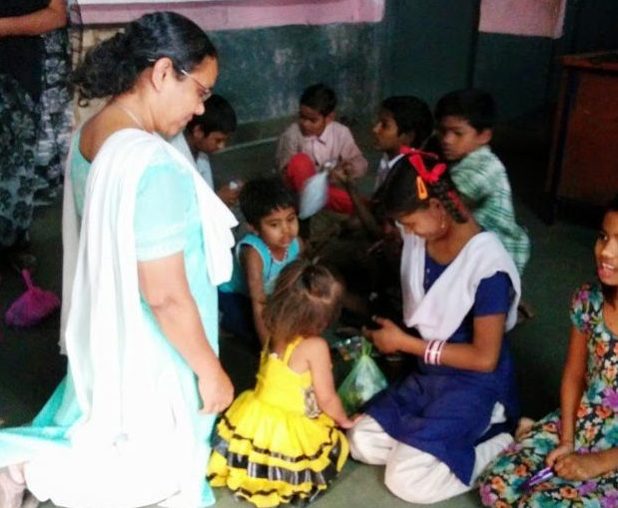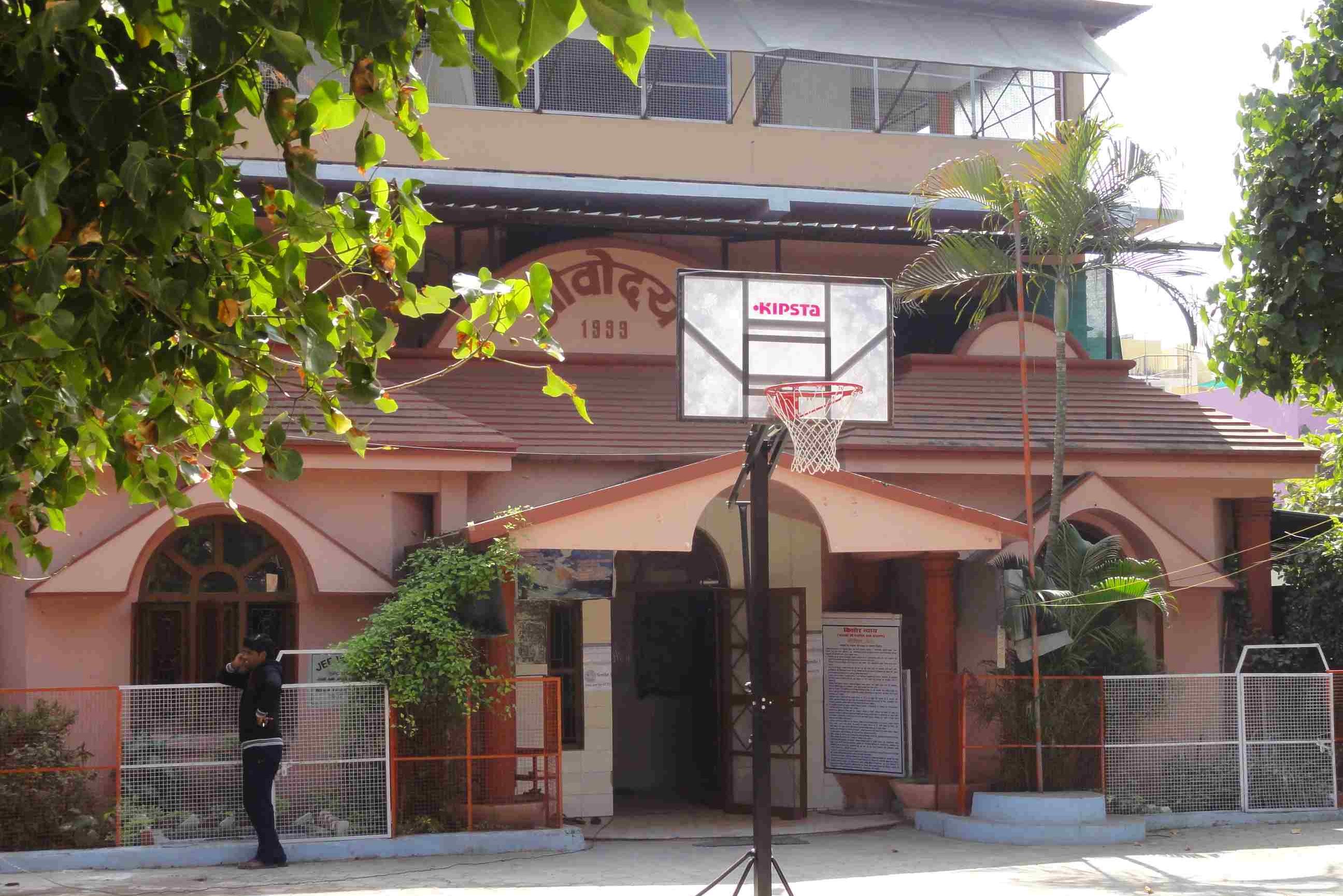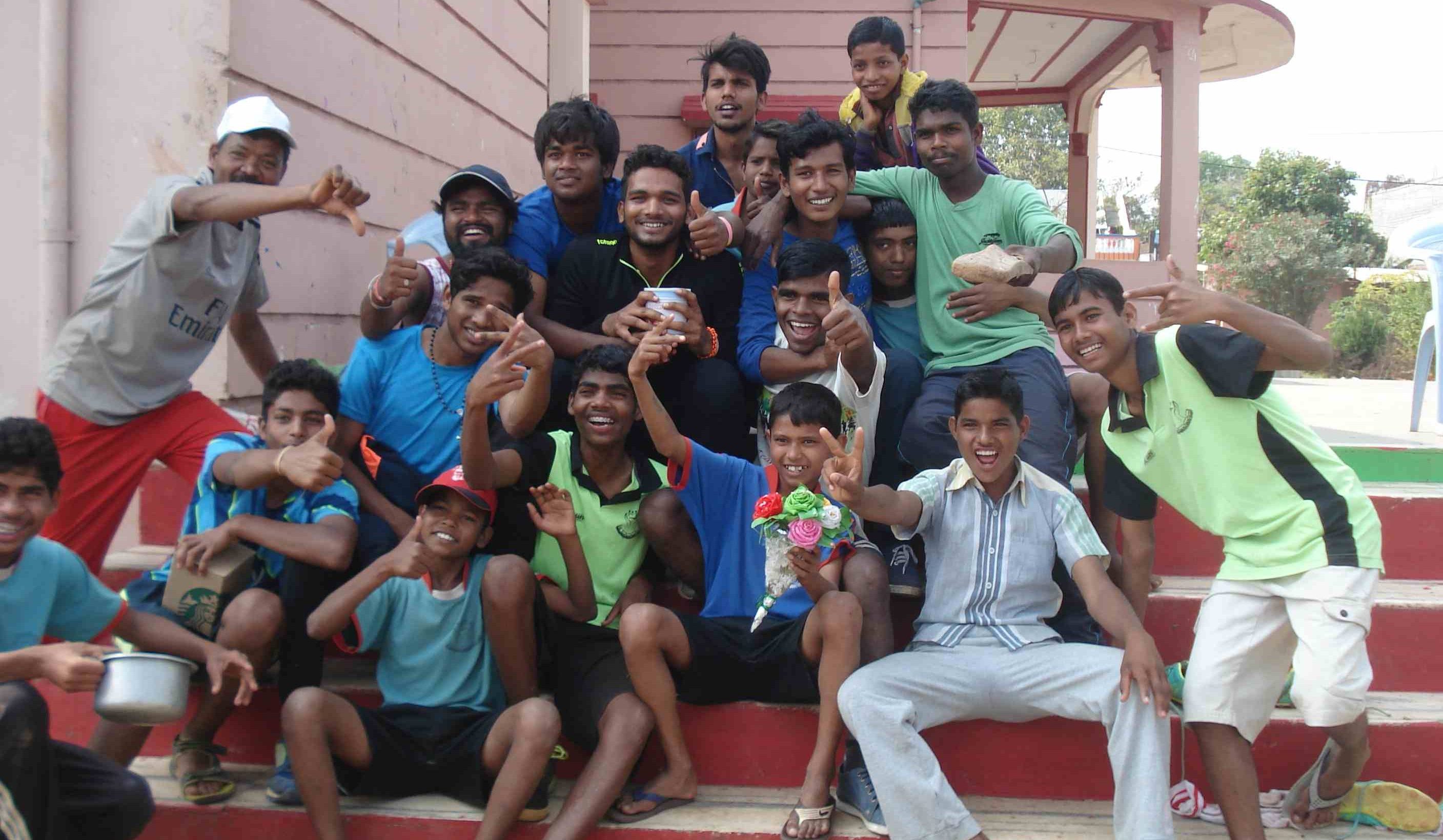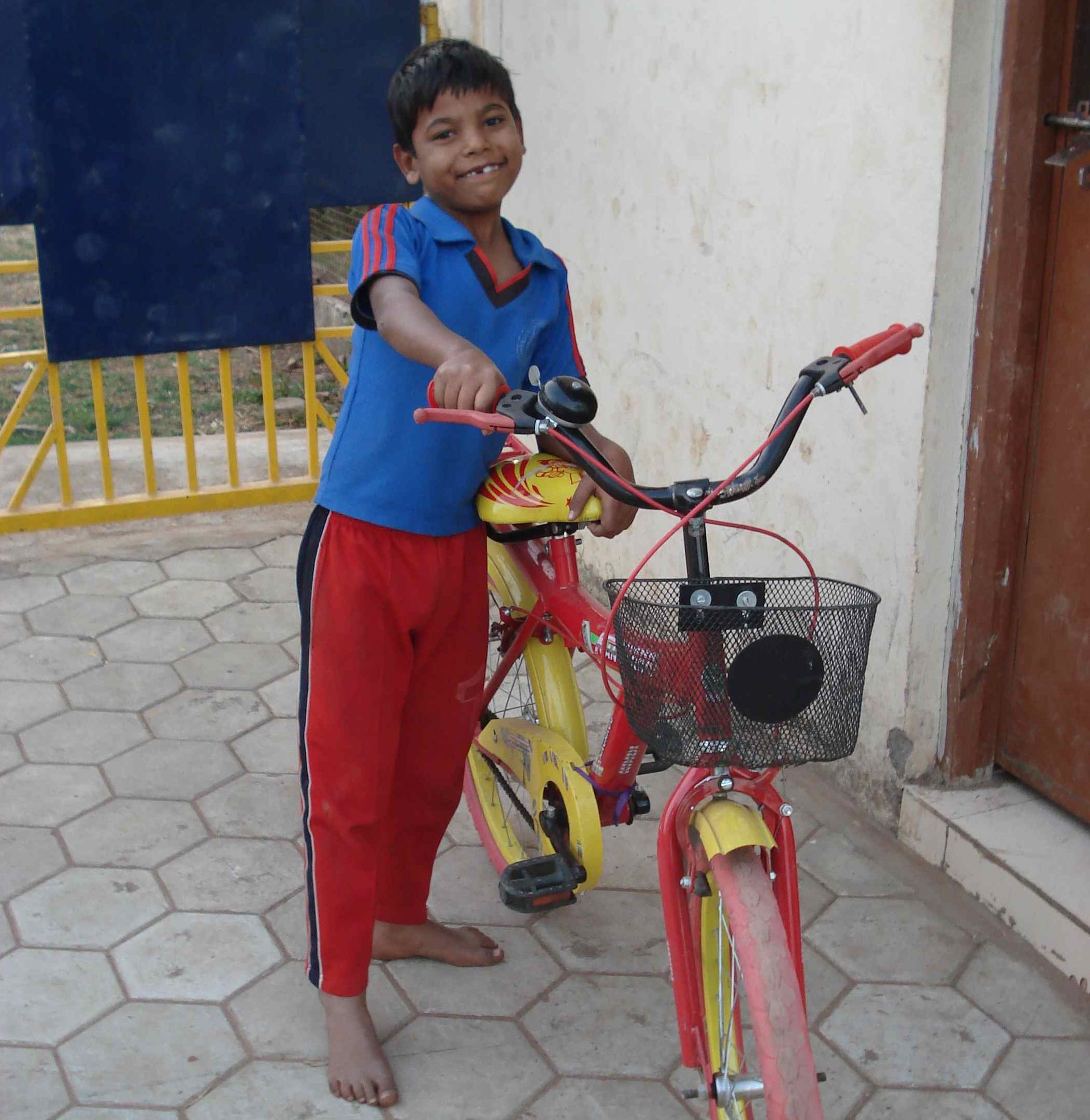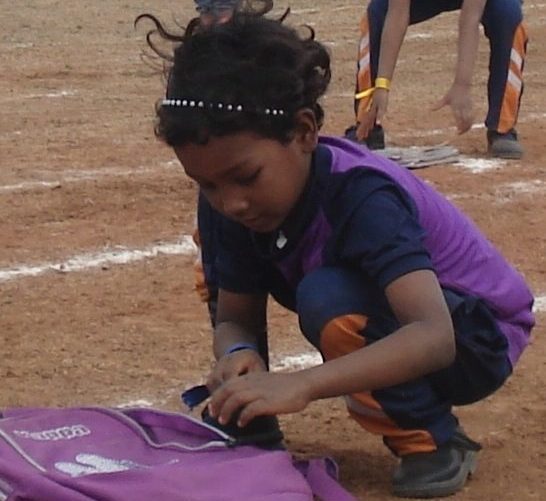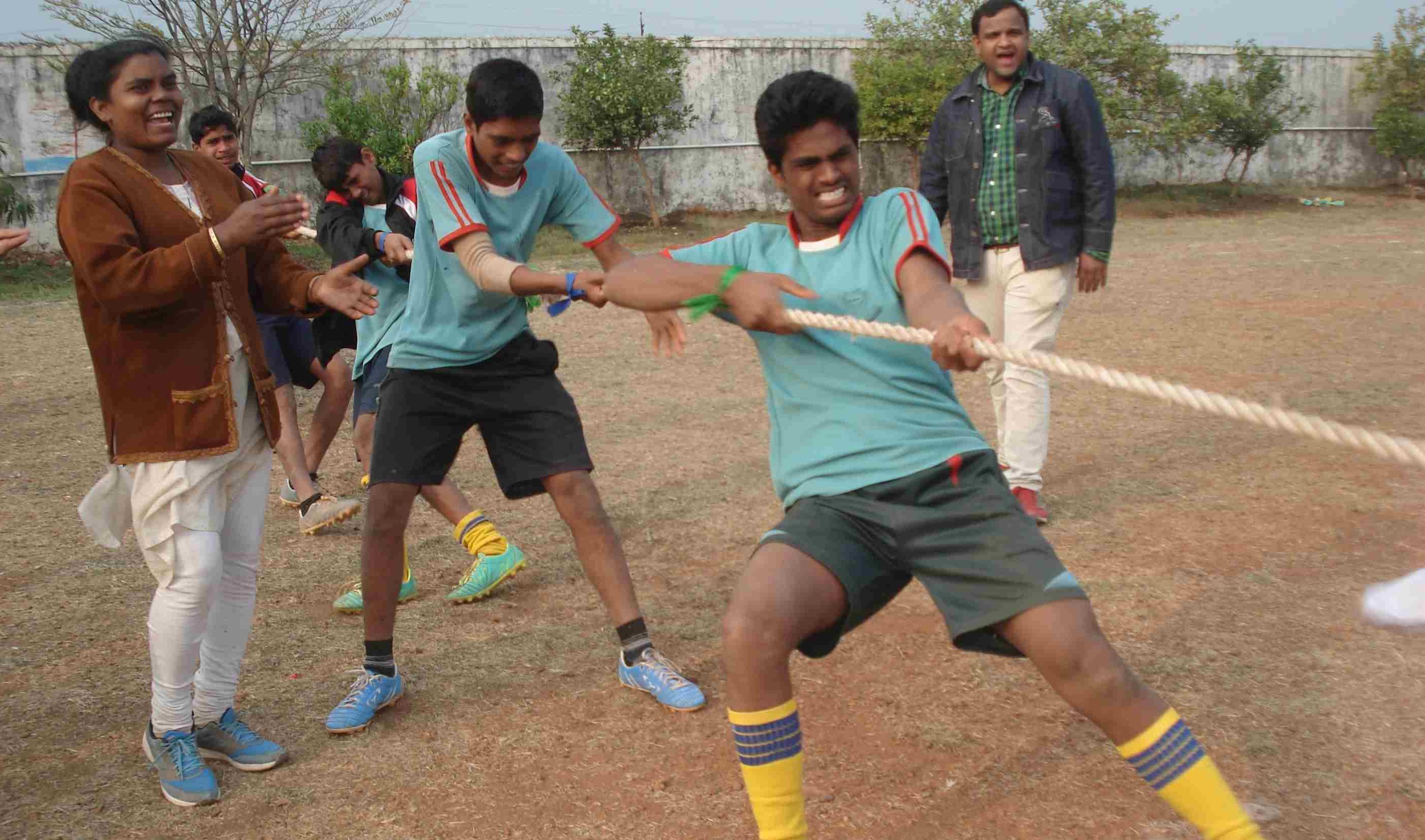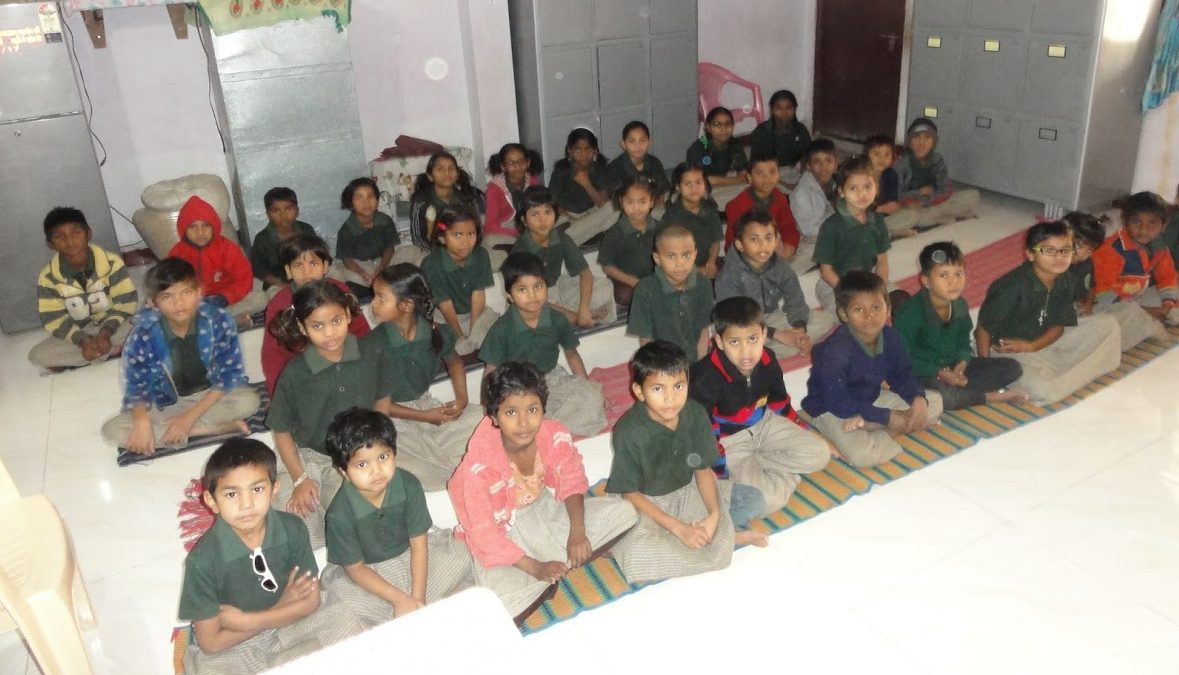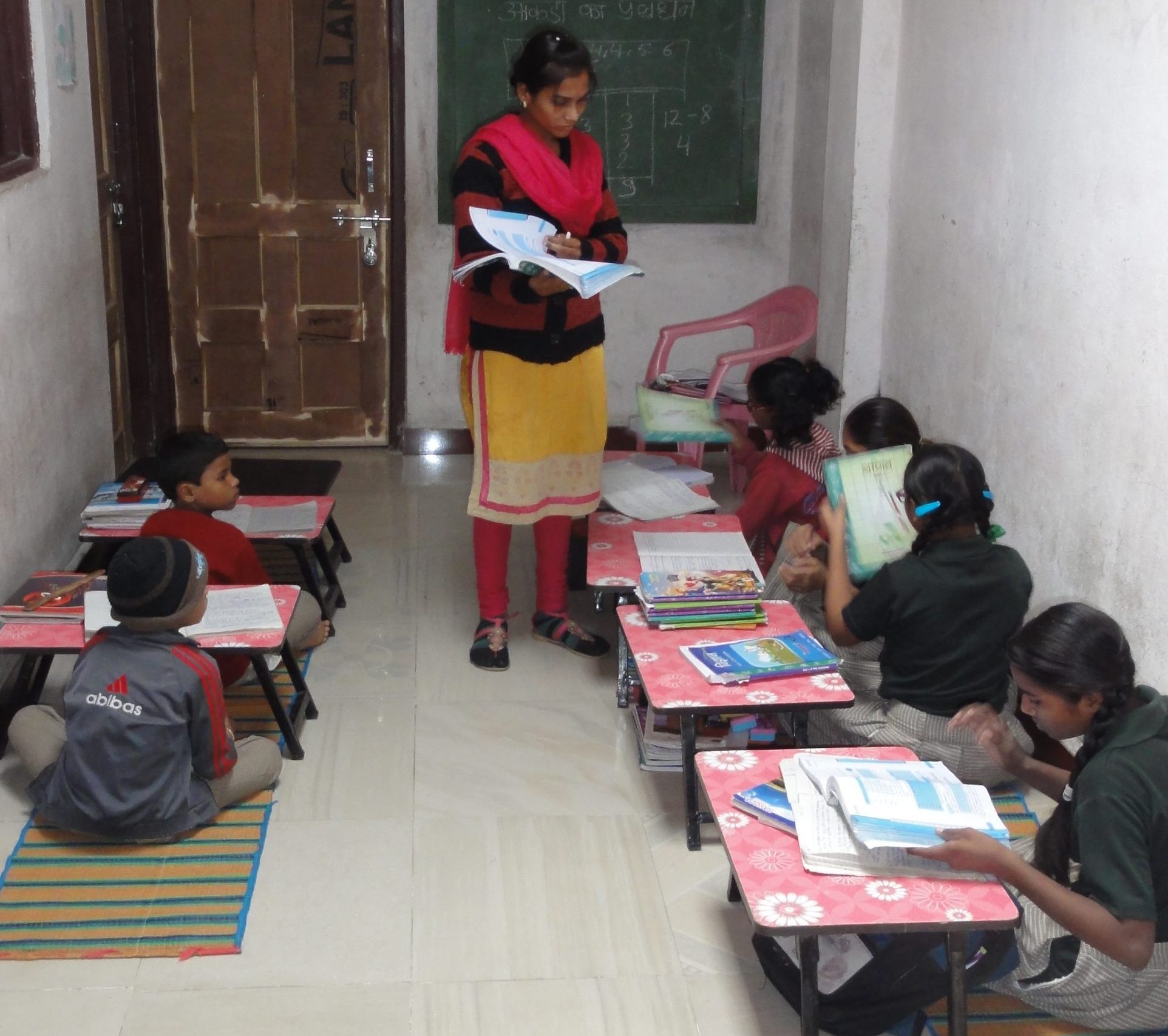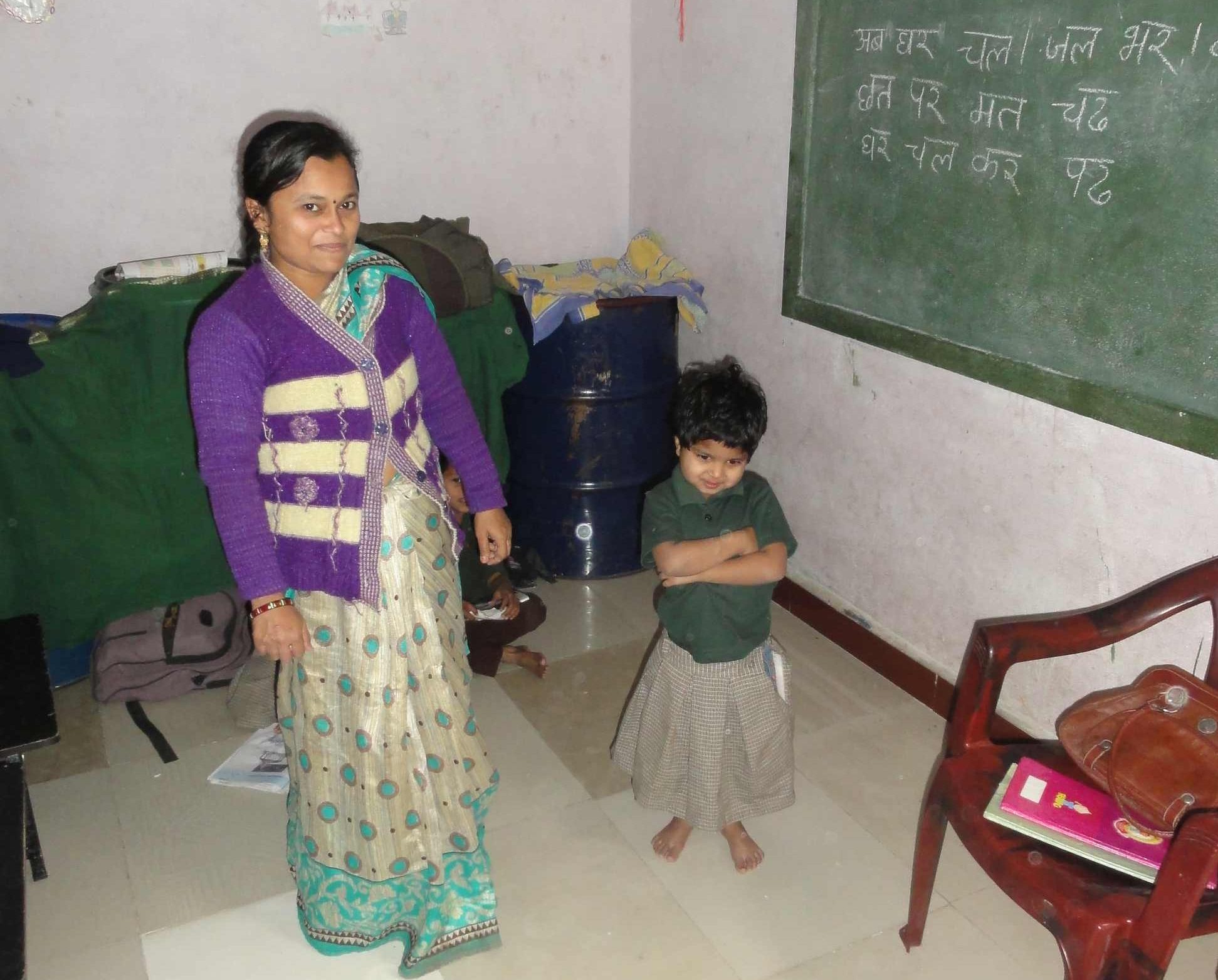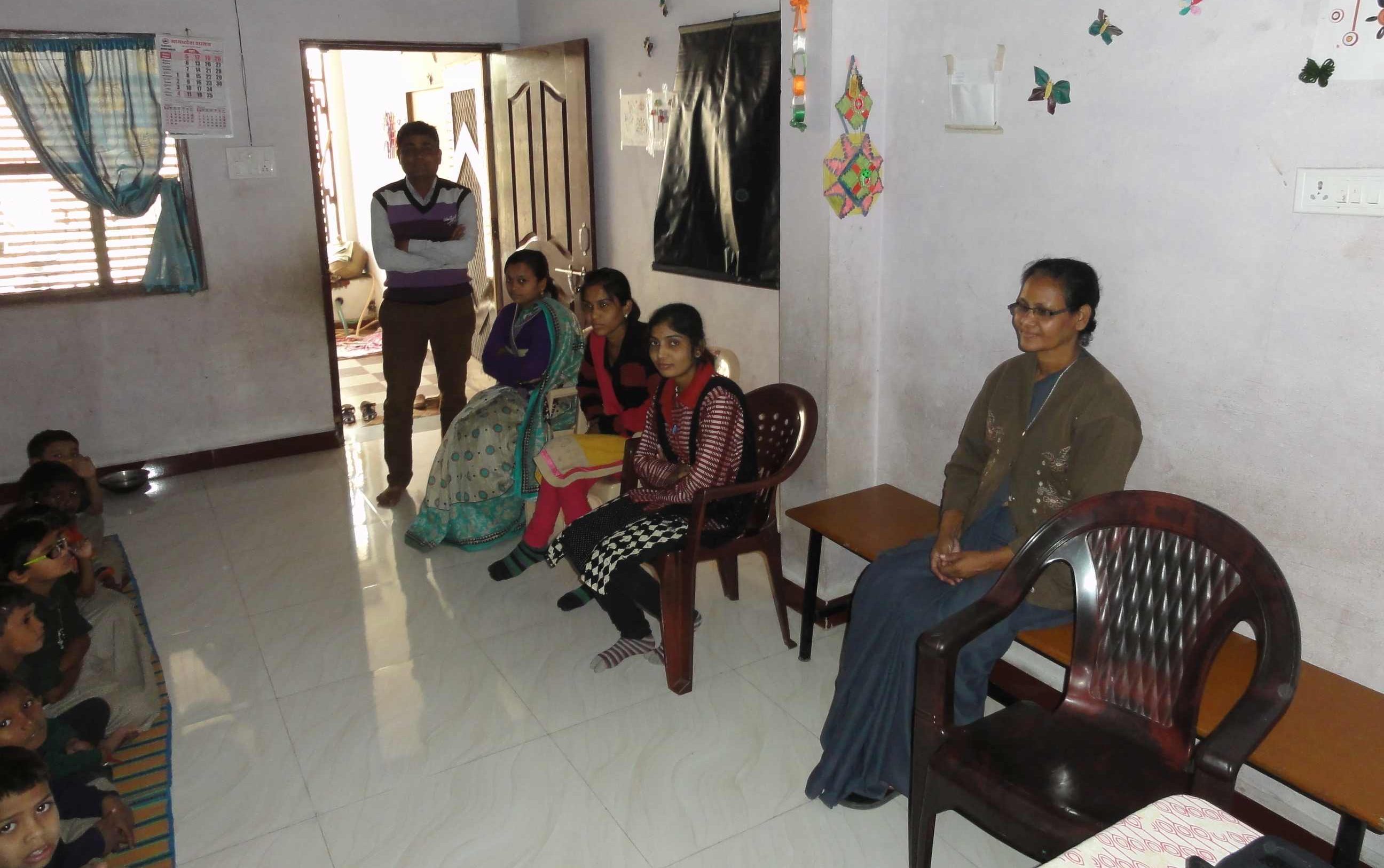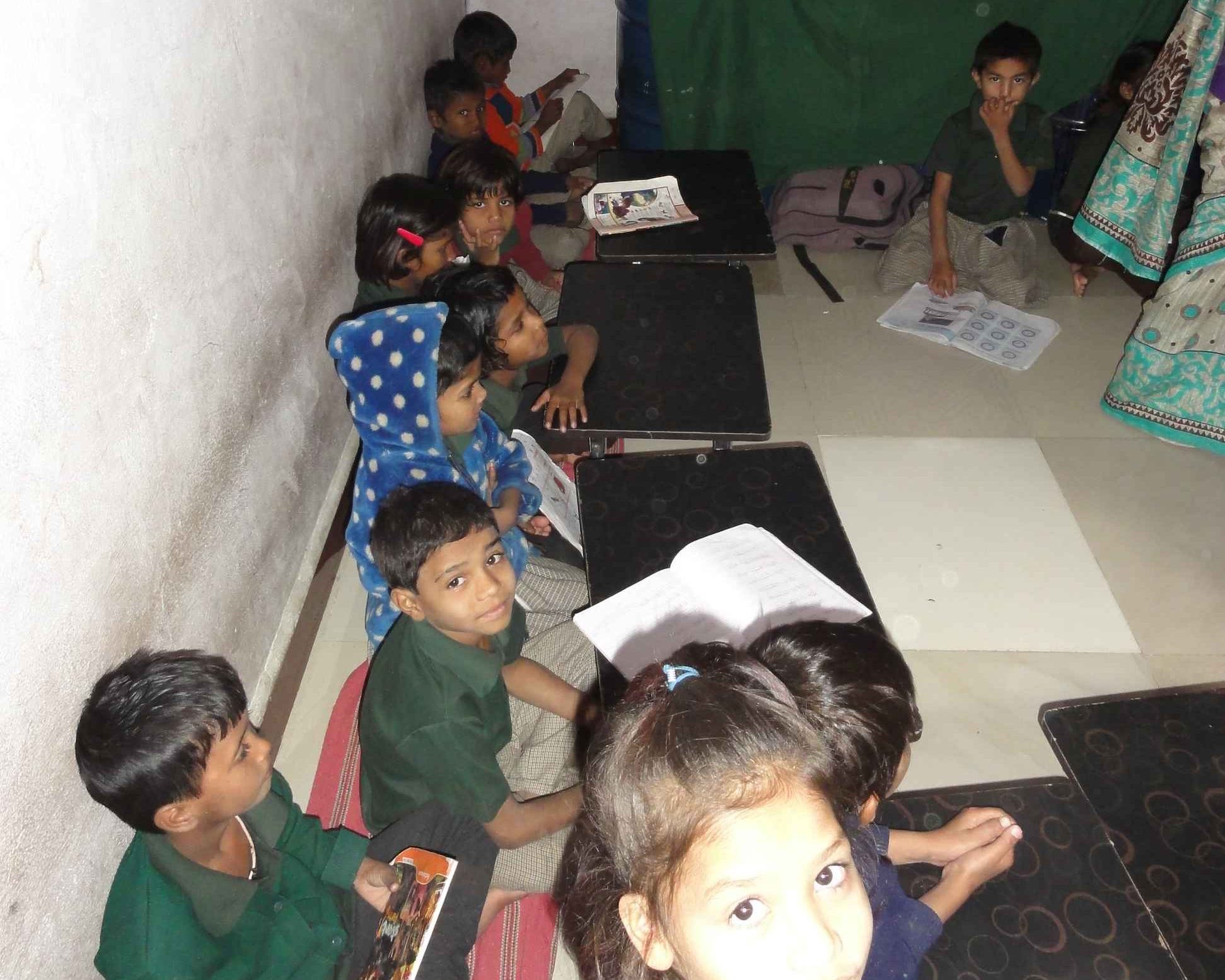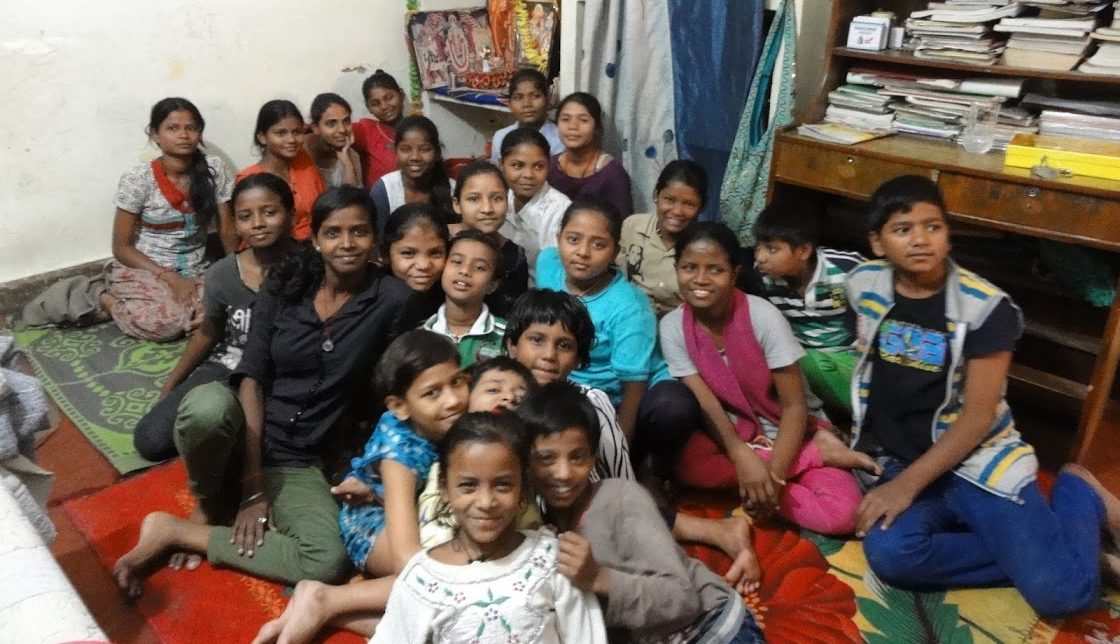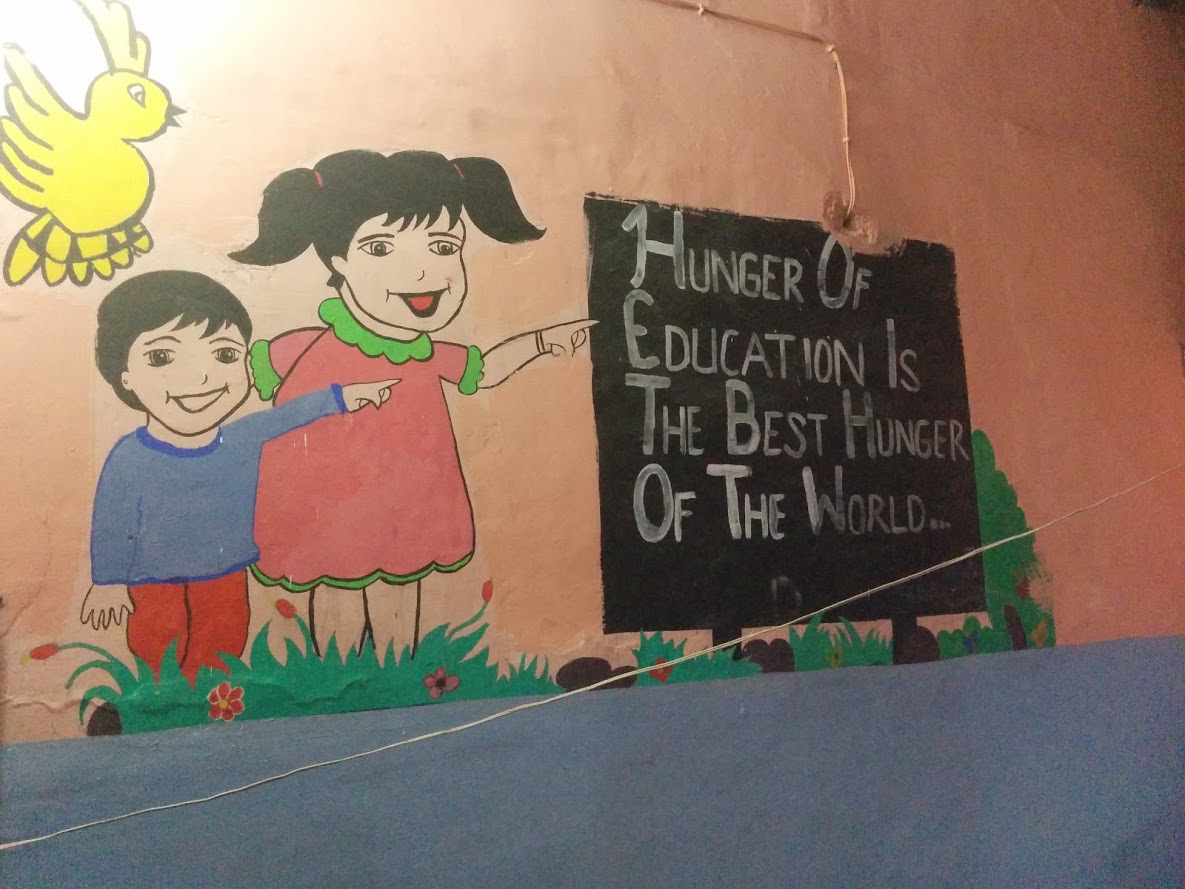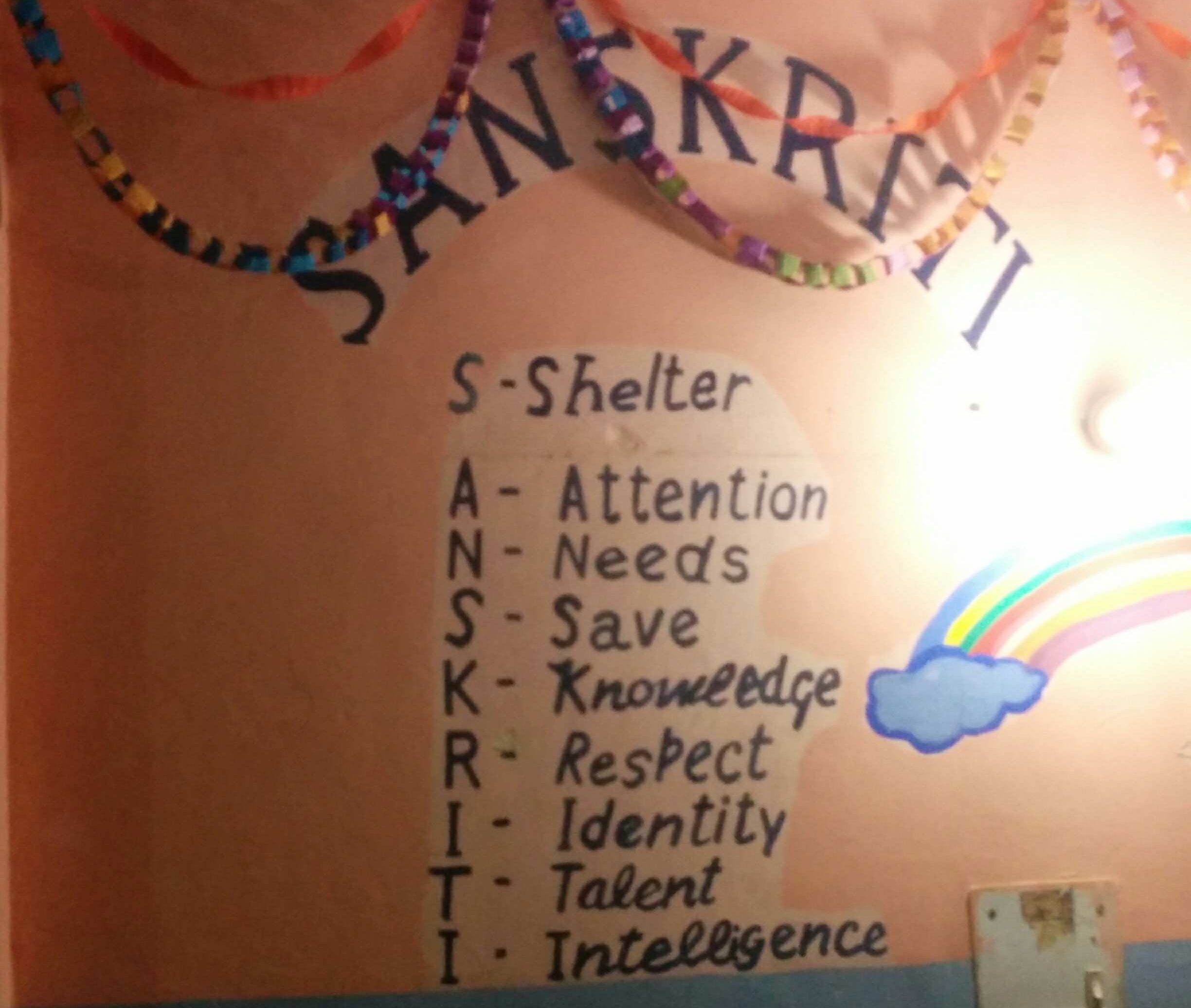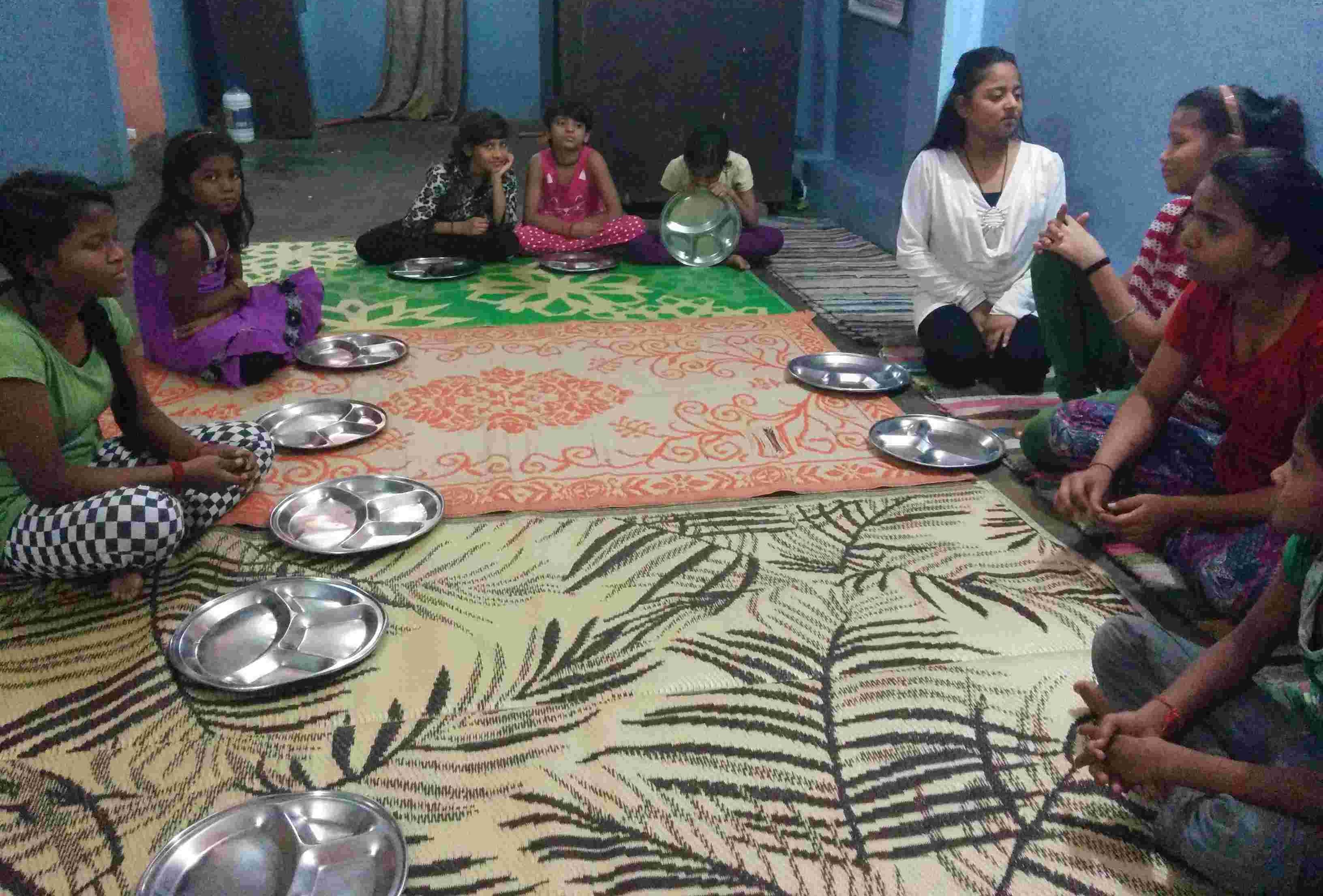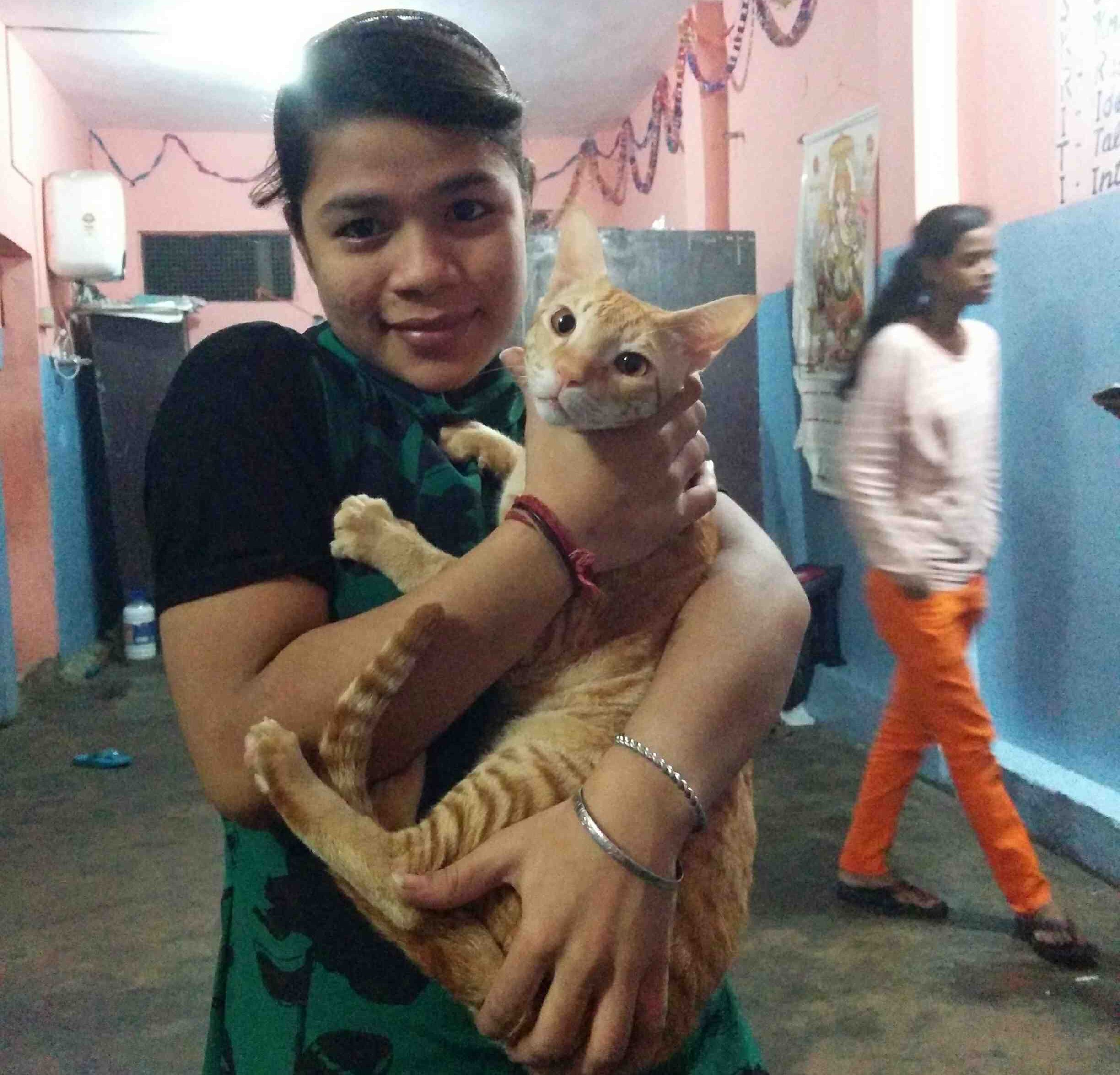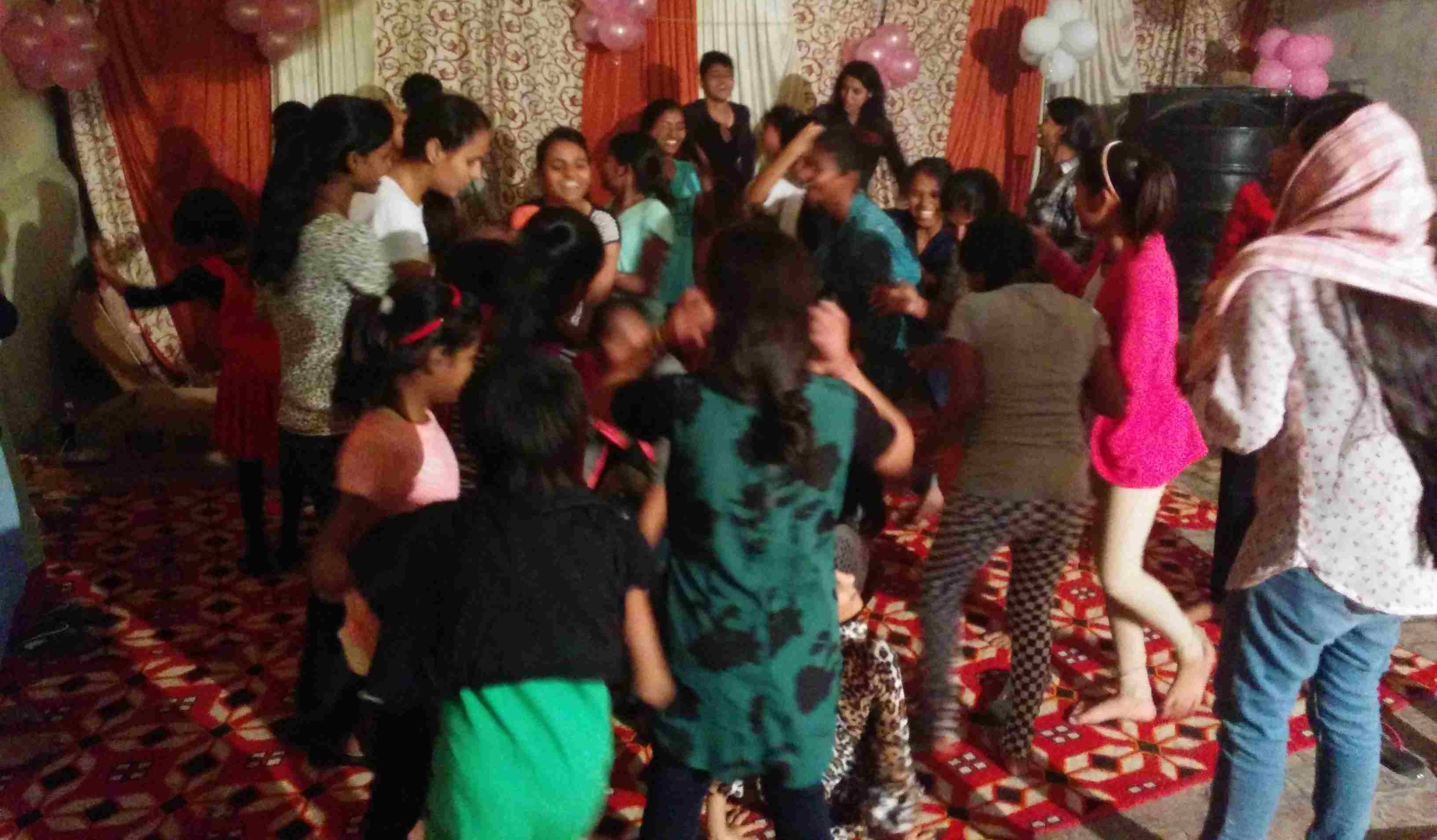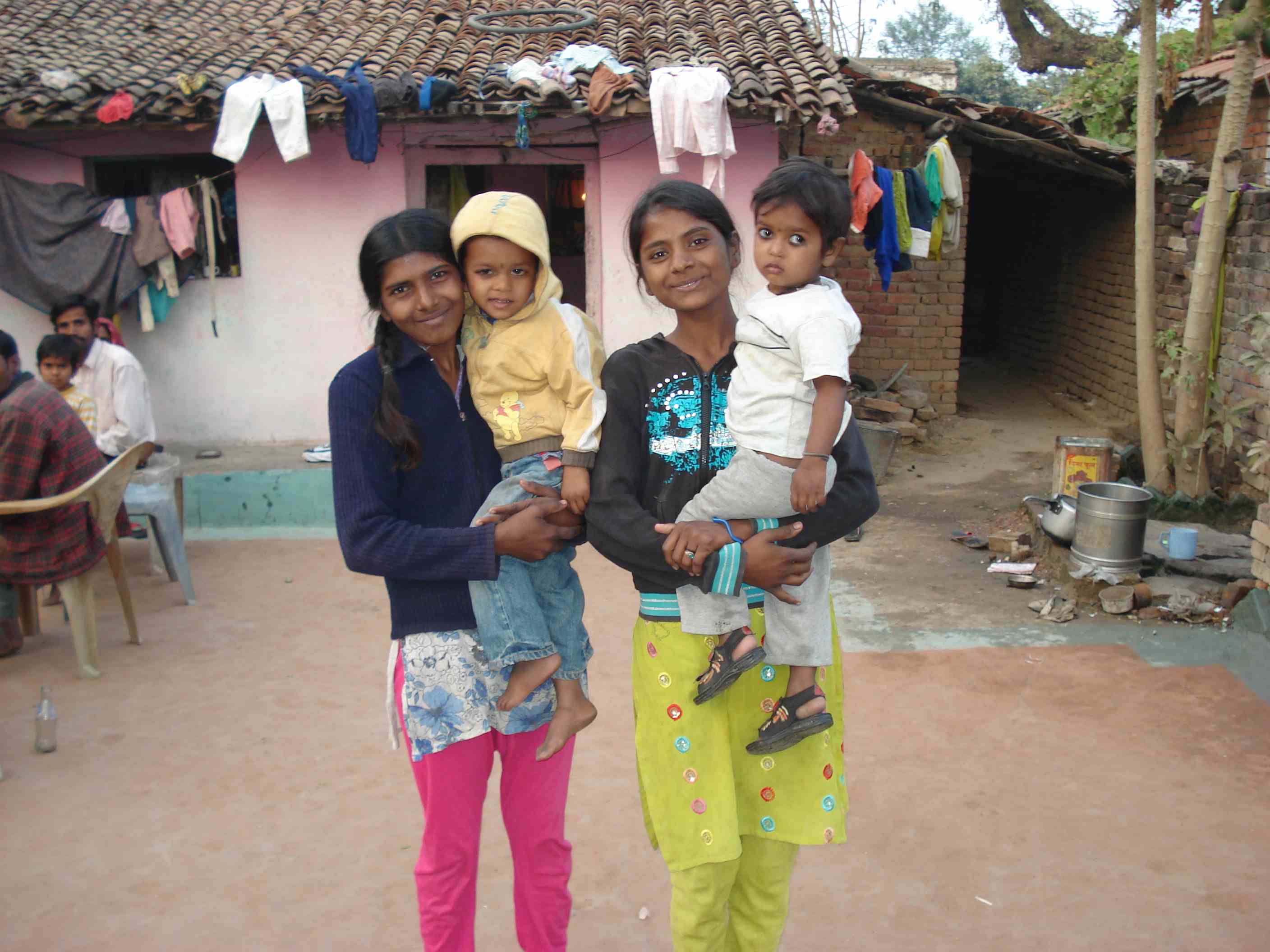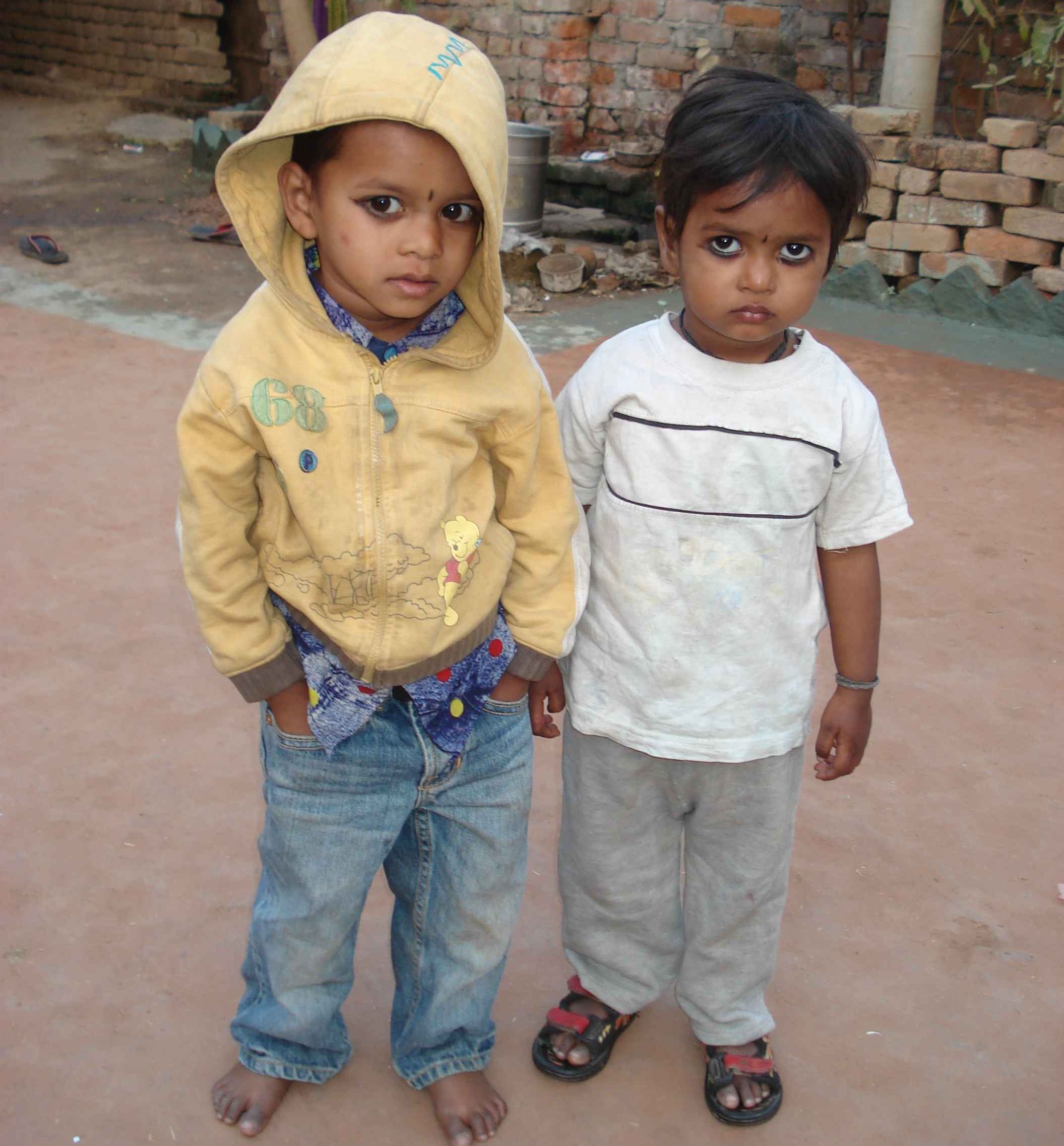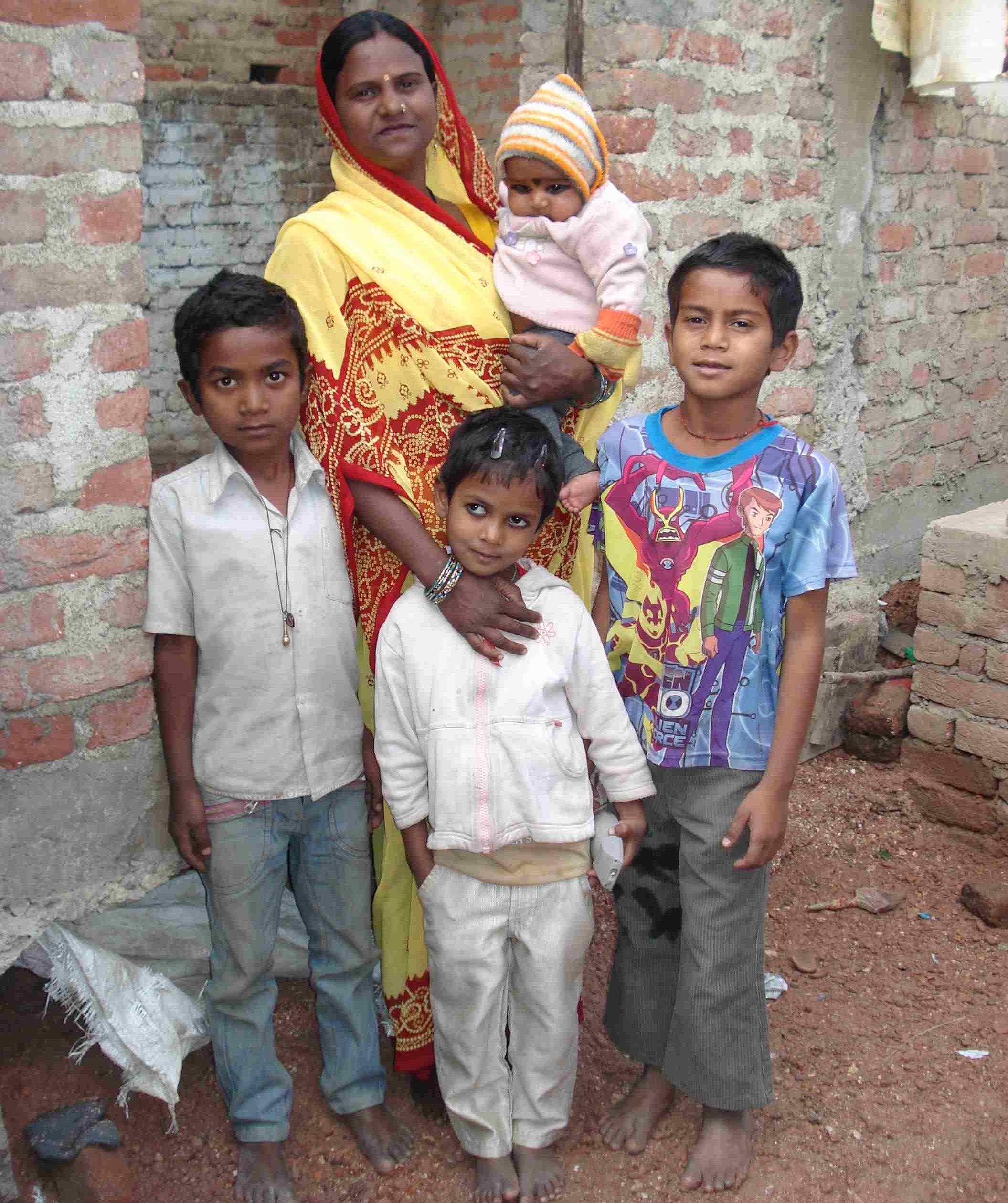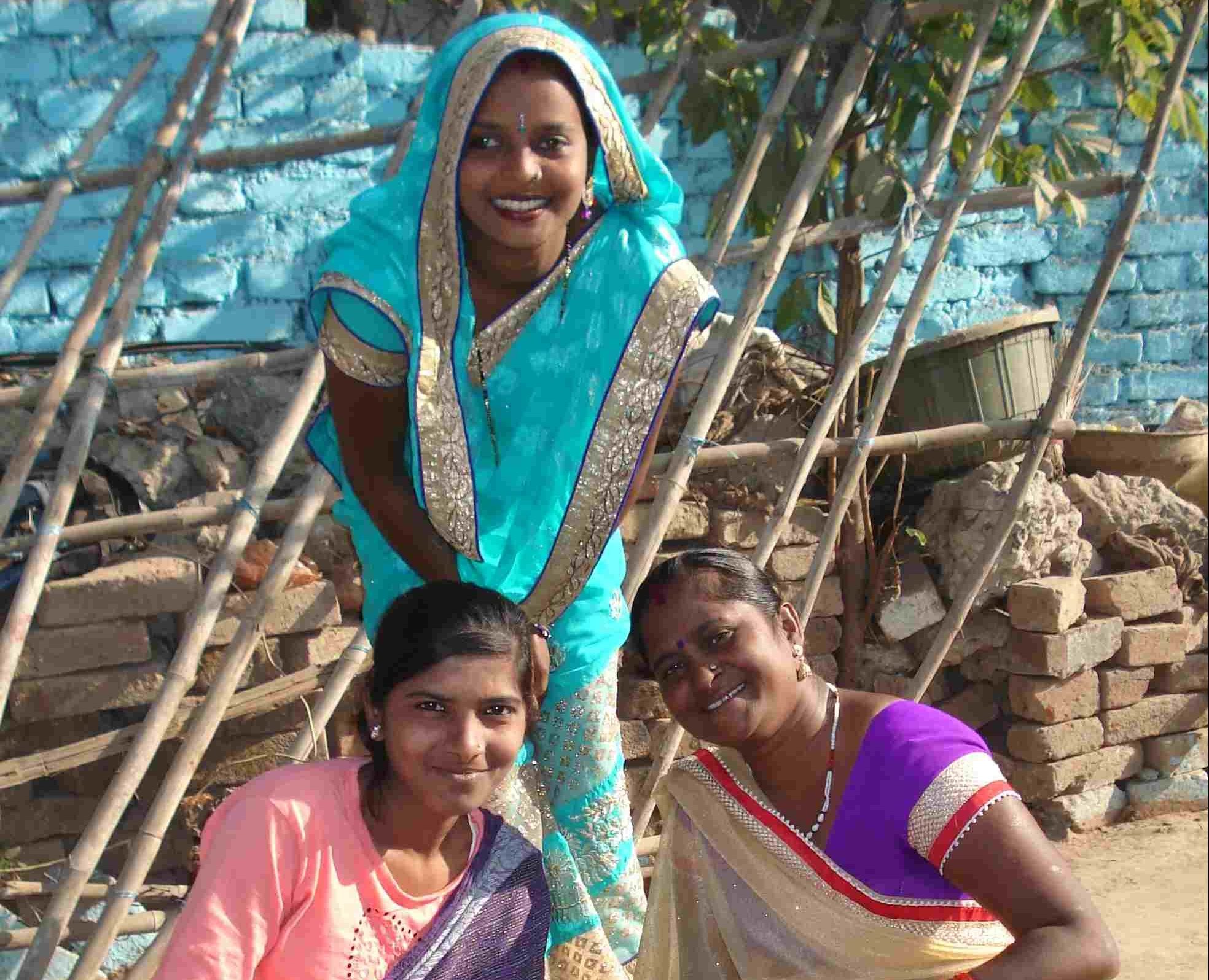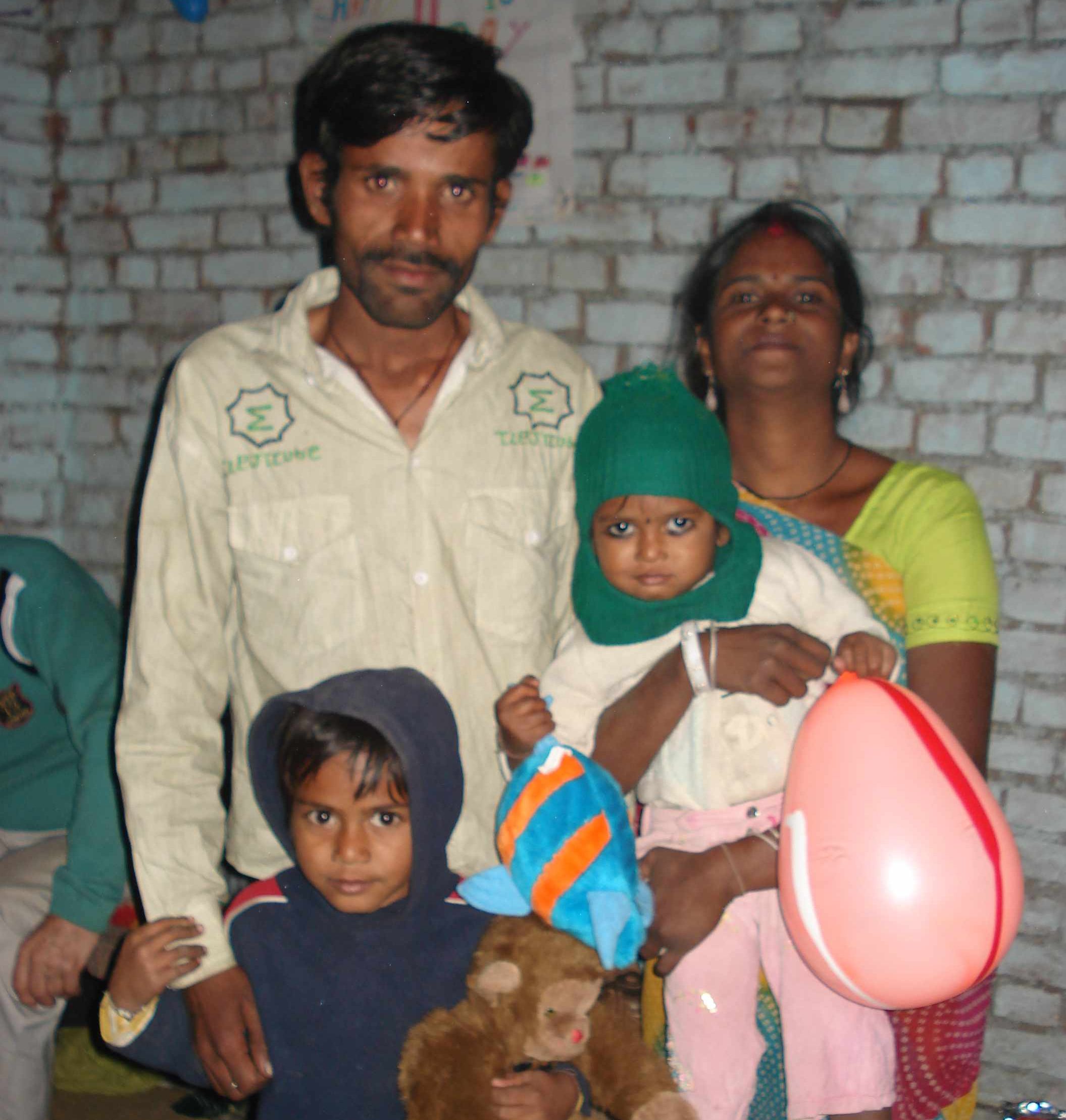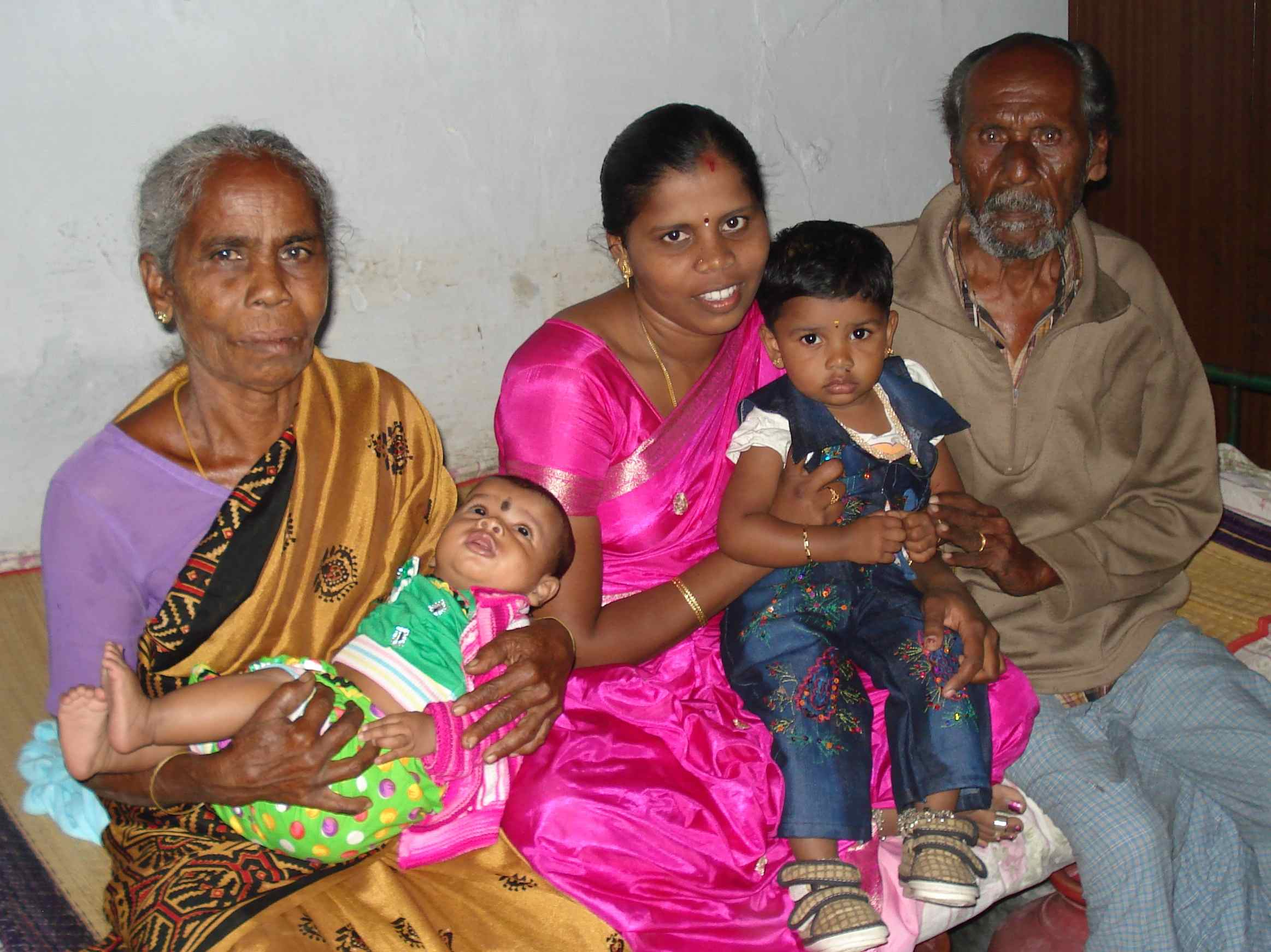Projects
We use our funds to support Indian organisations which run children’s homes or free schools, to help poor families educate their children at home, and give grants and subsidies to aged, infirm and sick individuals who have no other source of income.
While it is rare to find ‘orphaned and abandoned’ children in India, where the wider family usually plays an active role, there are many children from broken families whose sole parent cannot provide a safe and secure home environment. Such parents may be physically or mentally unwell, have physical or mental handicaps, be addicted to alcohol or drugs, working to survive and unable to access childcare, or unable to afford basic food and shelter.
There are few residential facilities for the children of such individuals, or for those who have no-one. Those which do exist often discourage parents from visiting, driving a wedge between parent and child. BEJT supports residential projects which retain or renew family links, aim eventually to return children to their own homes if possible, and seek to equip all children with the means to support themselves in adulthood and deal with any problems they may encounter in the outside world.
BEJT also supports a number of needy families and individuals directly.
Due to the manner in which BEJT evolved, our contact with most beneficiaries stems from their onetime presence at or near railway stations. All are located in India.
Jeevodaya
Jeevodaya is a secular non-profit organization and the largest scale project that BEJT supports. Located in central India at Itarsi, Madhya Pradesh, the organization provides residential homes for boys and girls who have been found staying on the railway platform, and a drop-in centre cum night shelter for new arrivals or those who are unable or unwilling to make the transition to a residential home. It receives government funds to operate an outreach service at the platform, liaising with the local Child Welfare Committee to evaluate individual cases and decide on further action. Ideally, repatriation at home is seen as the best option for any child, but for some residential care is necessary. The idea of fostering and adoption as an alternative to residential care is gaining ground in India, but while this programme is in its infancy the need for residential care is still great.
Jeevodaya was founded in 1999 by Sister Clara, a nun from St Joseph's Convent in Itarsi. Without any funding, she set up a day centre for 'platform children' at Itarsi railway station. These children, mainly boys, eke out a living by polishing shoes, sweeping out trains, or selling drinking water in recycled mineral water bottles. Some have run away from home because of family problems, and some for economic reasons, while some of the smallest just got lost. Platform life may seem great at first, with easy money and complete freedom, but the future for such boys is grim. Prone to sexual abuse, accidents, malnutrition and disease, many are drawn into lives of crime, and become addicted to solvents, alcohol, gambling or drugs.
In 2001 BEJT raised enough money for Sister Clara to purchase land and build a home for those who wished to settle down and go to school. Later BEJT helped to fund a second home so that girls could also be housed. There are currently about 30 children in each residence, aged between 4 and 18, in the care of house parents. They all attend local schools, get in-house tuition, enjoy extra curricular activities and have access to grounds where they are encouraged to participate in sport. Older children are sent to learn a trade, or proceed to higher education.
BEJT’s focus is on the continuity and quality of care in the residential homes, keeping up children’s contact with their families, and the successful transition of older children into the world of work/higher studies.
BEJT funds the project jointly with the Miracle Foundation based in the USA.
Visit the project's own website or Facebook page
Navya Jan Kalyan Samiti
NAVYA JAN KALYAN SAMITI is a secular non-profit organization working in the Barwaha district of Madhya Pradesh. Its founder, ex-nun Navya, with a small team of volunteers, started work with a colony of poor and illiterate dalit families, who lived as outcasts near the railway line. The adults spent most of the day away from home, collecting rubbish for which they earned a meagre income. The older children either went with them, or stayed to mind their small brothers and sisters, who often ran wild. Navya rented a small shelter in their midst, where the children were given guidance in hygiene and lessons in literacy and numeracy. They were encouraged to express themselves in dance and song and to celebrate festivals. Navya helped residents of a nearby leper colony to obtain piped water and electricity, and later shifted the railway families to live in the small houses at the colony, many of which were unoccupied.
After being gifted a small building, Navya started a free school for the children from the railway colony, the children of leprosy sufferers, and children engaged in rag picking at a slum. Their ages range from six to twelve. Some are bussed in daily, but most are resident. Navya lives on the premises, employs 4 teachers and a cook, and has a keen team of volunteers helping her whenever needed. She has government approval to teach children up to the age of 14. The children participate in local school competitions, as well as in local events to mark national festivals and holidays. They have often won prizes.
Navya has built up an excellent reputation locally, and obtains a lot of donations from local people and societies like the rotary club. However, BEJT is her only major source of funding.
The Sharma Home for Girls (Sanskriti)
THE SHARMA HOME FOR GIRLS is secular non-profit organization run by Mrs Sharma, on the top two floors of her father-in-law’s house in a suburb of India’s capital, New Delhi. In the 1990s she worked for a charity based at New Delhi Station, giving tuition and guidance to poor families in a slum nearby. When the organisation wanted to open a hostel for girls, Mrs Sharma offered her own home. After they left for other premises she decided to foster 6 girls, and bring them up alongside her own four daughters. This number grew to over thirty, to accommodate which BEJT funded the building of an extra floor on the house. All the girls attend local schools and colleges, whilst the older ones undergo vocational training or go into higher education. Parents are encouraged to phone/visit, and receive counselling if necessary. Some girls go home for part of the school holidays. A few working girls remain at the home and give Mrs Sharma a helping hand, preferring the homely environment to shifting elsewhere.
The Sharma family is well connected and the home receives many local donations. However, BEJT provides all the salaries, educational and living costs.
Direct support for needy families and individuals
BEJT works toward the uplift of several dalit families living in Rewa district, Madhya Pradesh. There is little work in this traditional rural area, especially for dalits (formerly known as untouchables), who are still treated as second class citizens, or worse. Many of the men have migrated to Delhi, in order to support their families. BEJT funds the educational cost of their children, enabling them to attend modest private schools. Although education is free in government schools, the standard is low and books, pens and uniforms are not provided.
BEJT also helps toward medical and housing costs, especially focussing on the provision of toilets and bathing facilities.
Although in Delhi work is readily available, for the unskilled and less educated hours are long and wages low, making daily existence a struggle. BEJT helps several families with their rental payments.
BEJT gives living subsidies to several aged and sick individuals who can no longer work to earn a living, and have no other means of support, ensuring that they retain some dignity in sickness and old age.
BEJT helps several people brought up in care, who suffer from lack of family support after they have left. It pays for a young mentally handicapped woman to board at a special school during term time, and for a disabled woman to give her children a good education.
